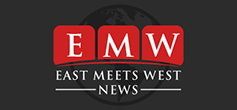The Fraser Institute: Study Shows More Needs to Be Done to Reduce Red Tape and Ease Labour Shortage in Alberta’s Oil Sands
2008-07-22 07:00:00
The Fraser Institute: Study Shows More Needs to Be Done to Reduce Red Tape and Ease Labour Shortage in Alberta’s Oil Sands
CALGARY, ALBERTA–(EMWNews – July 22, 2008) – The recent agreement among Canada’s premiers to harmonize job credentials and certification should help improve labour mobility but much more needs to be done, particularly at the federal level, in order to help reduce labour shortages across the country, according to a new Fraser Institute report.
“The premiers’ pledge to recognize certifications awarded to skilled workers in other provinces is a first step towards reducing government regulations that limit workers’ ability to seek work across Canada,” said Gerry Angevine, co-author of the Fraser Institute report, Eliminating Barriers to Worker Mobility: Increasing the Availability of Skilled Labor in Alberta’s Oil Sands Industry.
“The key now is to ensure that individual provinces don’t seek exemptions or exclusions for certain groups. We need to hold the premiers to account and keep moving forward.”
Angevine’s report, co-written with Graham Thomson, Fraser Institute policy analyst, examines current provincial and federal barriers to worker mobility and finds that in many cases, government policies are restricting labour mobility and creating labour shortages, particularly in areas with high demand such as the Alberta oil sands.
The report comes as oil sands projects worth more than $165 billion are either underway or in the planning stages, driving up the demand for skilled labour.
“Government constraints on labour mobility are robbing workers of opportunities and saddling employers with higher costs,” Angevine said.
Angevine and Thomson recommend policy reforms that would allow workers and employers to adapt to market conditions:
1. Allow for mutual recognition of trade certifications among all provincial and territorial authorities without exemptions or exceptions to full labor mobility;
2. Eliminate incentives within the Employment Insurance program that keep
workers in areas where employment is largely seasonal; and
3. Revise NAFTA to facilitate the cross-border flow of skilled workers.
Licensing requirements
Canada’s premiers have agreed in principle to honor the licenses and certifications of skilled workers from other provinces and territories. But government officials must resist demands for exemptions from professional groups and unions intent on hindering worker mobility.
Employment insurance
Canada’s generous Employment Insurance program reduces the incentive for workers to seek new employment quickly. Research has shown that the program actually encourages workers to remain in areas where unemployment is high in order to receive increased benefits.
Angevine and Thomson suggest that the federal government should adjust the unemployment payments by basing workers’ contributions on their actual claims history.
“Matching worker contributions to actual claims would reduce the incentive for workers simply to collect benefits instead of seeking employment in Alberta or other areas where demand for labor exists,” Angevine said.
Restrictions on foreign workers
Although the North American Free Trade Agreement facilitates the cross-border movement of professionals, entrepreneurs, and investors, it does little to promote the cross-border movement of skilled workers.
Foreign workers seeking employment in Alberta must meet certification requirements. If they fail to qualify, they must leave the country. For workers certified in skilled trades in their home country, the Canadian requirements – and the risk of having to return home – prevent some qualified workers from making the effort to find jobs in Canada. The requirements also discourage Canadian employers from recruiting foreign workers.
The report recommends expanding the labour mobility clause in NAFTA to include skilled trades people as well as the already accounted for professionals. The report also recommends that the federal government negotiate agreements with other countries to honor labor certifications that match Canadian requirements.
Angevine points out that Australia and New Zealand allow the free flow of workers between the two countries.
“Without substantial regulatory reform, Canadian government policies are restricting the free flow of labour and imposing artificial shortages on the labour market,” said Angevine.
“Ultimately, these restrictions benefit no one and will only lead to increased costs for oil sands projects and, ultimately, reduced investment and jobs in Alberta.”
The Fraser Institute is an independent research and educational organization with offices across North America and partnerships in more than 70 countries. Its mission is to measure, study, and communicate the impact of competitive markets and government intervention on the welfare of individuals. To protect the Institute’s independence, it does not accept grants from governments or contracts for research. Visit www.fraserinstitute.org.
|
For more information, please contact The Fraser Institute or The Fraser Institute |
|
Major Newsire & Press Release Distribution with Basic Starting at only $19 and Complete OTCBB / Financial Distribution only $89
Get Unlimited Organic Website Traffic to your Website
TheNFG.com now offers Organic Lead Generation & Traffic Solutions



























